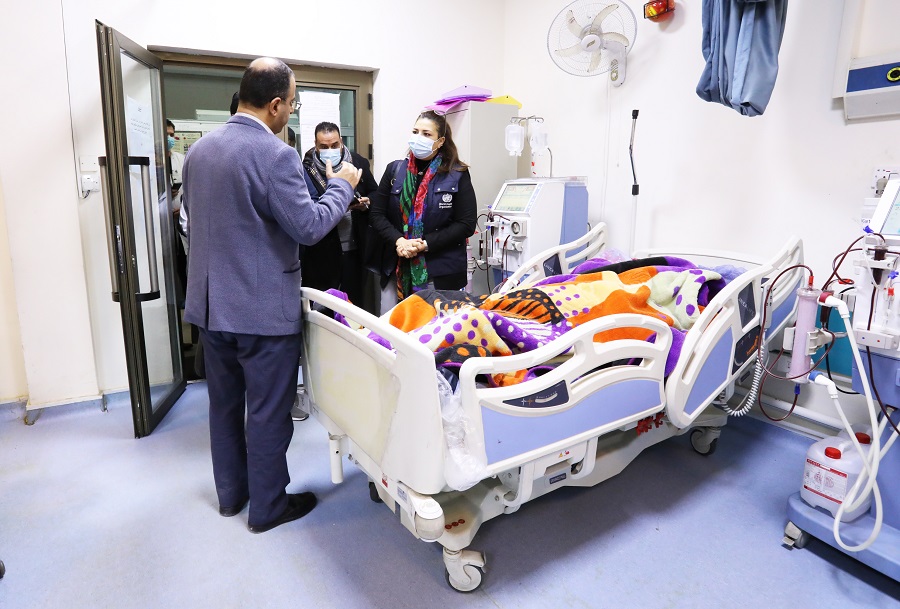
16 February 2023 — The World Health Organization (WHO) is working with the Ministry of Health of Iraq to enhance infection prevention and control (IPC) measures in public hospitals. This collaboration is part of the WHO strategy to curb further transmission of COVID-19 and other infectious agents inside hospitals.
The Japan International Cooperation Agency supported WHO in providing essential medical supplies and equipment to enhance the IPC measures in hospitals and conduct training workshops focusing on IPC practices and oxygen safety.
The project, valued at approximately US$ 700 000, is necessary to increase hospital capacity to boost IPC and provide quality health care services and specialized interventions, including anaesthetic and intensive care services.
"It's vital to follow evidence-based guidelines and protocols to reduce the spread of infectious diseases, particularly during the COVID-19 pandemic and other infectious disease outbreaks," said Dr Ahmed Zouiten, WHO Representative in Iraq.
"WHO is committed to providing technical support and resources to help Iraq improve implementation of IPC measures and achieve quality health care delivery."
The project is being implemented in 10 hospitals across 4 governorates and aims to expand to more hospitals this year. Since March 2022, WHO has conducted several workshops to equip more than 400 health workers in targeted hospitals with the knowledge and skills to implement IPC standard guidelines and follow IPC measures, including waste management, handwashing, proper use of PPE and patient safety to prevent hospital-acquired infections.
The WHO regional team have also visited Iraq to provide technical support, conduct on-the-job training and evaluate the implementation of the IPC project. WHO and the Ministry of Health have developed and distributed the national IPC guidelines.
WHO provides evidence-based recommendations and guidelines on IPC to ensure that the measures are based on the latest scientific evidence and reduce the risk of contracting and spreading infectious diseases, which is especially important in Iraq, where access to health care and medical resources may be limited.


